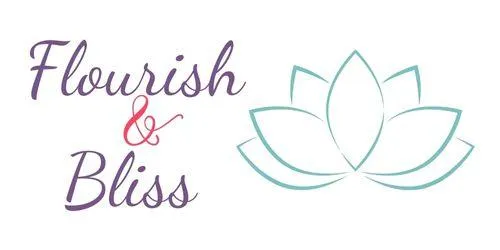
A Personal Growth and Fulfilment Adventure


The Gift of Conflict
If you’re like me, you’ve spent a huge portion of your life avoiding confrontation, unpleasant situations, and discomfort in general.
Back in my church-going days I was taught that trials and tribulations were the catalyst for people that achieved greatness.
Makes perfect sense.
But I didn’t internalize that lesson until later in life. Up until that point, hard times were something that happened to me - not for me. (That’s a topic for another article.)
While working my first job after my divorce, I had a manager that didn’t like me. I couldn’t do anything to please her. The harder I tried, the more she attacked me. When I got the chance, I changed my schedule to get away from her. (Do you hear the victim tone here?)
Fast forward several years when I started a new job working with a small, close-knit group of women. I was familiar with them, and we had things in common. It was going to be great!
Until it wasn’t…
As my manager and I got to know each other better, I felt the old, familiar feelings that she didn’t like me. My anxiety shot through the roof, knowing I would never make her happy. I was playing a game I couldn’t win. I was right back where I was years earlier.
Fortunately, I was a different person this time around, with months of therapy and intensely working on my personal growth. The concept of life happening for me was finally taking root in my core.
As our relationship ebbed, and occasionally flowed, my perception changed. If this experience was happening for me, why? What was the lesson?
I have a part in how people treat me
There’s a concept that we are partially responsible for how others treat us. I wish I could remember where I heard it, but the premise is that we come to every interaction with beliefs of who we are and what we deserve. We set our boundaries (or don’t) and determine what we will tolerate.
When I started working for my new boss, my confidence was shaky and didn’t trust myself. It’s not surprising that she pointed out all my mistakes, when my focus was on all my shortcomings. In a perverted way, she mirrored how I felt about myself.
The Law of Attraction says we call in what we focus on. If you want something more scientific, our reticular activation center is the part of our brain that brings our attention to what we’re thinking about, like when we buy a new car and start noticing all the other same model cars on the road. There’s even a study that demonstrates how people pick up on other people's emotions through smell. (Vanessa Van Edwards’ Mindvalley Charisma Quest)
It feels like a cruel joke that when we’re down, we attract more pain and disappointment.
But it also means the opposite is true – success breeds success.
Question everything
There’s a saying, “Don’t believe everything you think”.
It’s important to question the self-talk that loops in our minds. You know the incessant litany of criticism of everything we do, say, and think…
· “Don’t be lazy and get out of bed.”
· “You sound stupid when you don’t know the answer.”
· “What makes you think you’re good enough to date that guy?”
Our inner critic relentlessly goes on and on.
But do we ever stop to question the validity of what it’s saying?
· Maybe we’re still in bed because our body needs more rest.
· Is it reasonable that we know all the answers? (Does anyone enjoy hanging out with people who think they know everything?)
· Who says that guy is good enough to date us?
You get the picture.
Now if we can’t always trust what we say to ourselves, why would we automatically accept other people’s opinions or labels?
Going back to my boss, I noticed the way she described me. She told me I wasn’t friendly and too helpful (what does that even mean?). I overheard her tell coworkers she didn’t know which was worse, a crazy ex-employee or the current low self-esteem employee (that would be me).
Fortunately, I was in a place to call BS on her labels. But that hasn’t always been the case.
There’s been so many times in the past that I believed what others said about me. Even worse were the times I believed what I thought they felt about me!
Finally, don’t believe everything you feel.
It’s important to pay attention to our emotions and question where they came from.
Just like the thoughts constantly running though our minds, we can have a lot of stories about the why we feel our emotions.
When I’m feeling mellow, I might tell myself the story that I’m sad or lonely. When actually, I’m just relaxing and enjoying my alone time.
Or I might tell myself I should feel a different way. How often have you (or someone else) said, “I should feel excited” or “I should be bubbly”.
Beware of “should”!
Should is usually about fitting into someone else’s definition of you and leads to letting go of your authenticity.
Dig deep
After about a year, I felt this shift with my boss and things were okay. Not great, we didn’t become best friends or anything. But she was no longer the enemy.
Turns out, our conflict was a big catalyst for my growth.
I recognize my cues and triggers, find the root, and be very intentional about how I choose to respond because I’m in control. It’s so empowering to act instead of being acted upon!
With that power, I’m building my self-concept. Gone are the days of letting other people define me!
So, the next time conflict arises, challenge yourself to dig deep, and embrace it as an opportunity for growth.
Learn more about Vanessa Van Edwards’ Mindvalley Charisma Quest here (affiliate link)
Don't miss a post!
